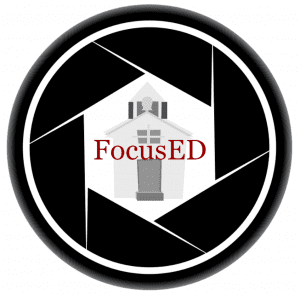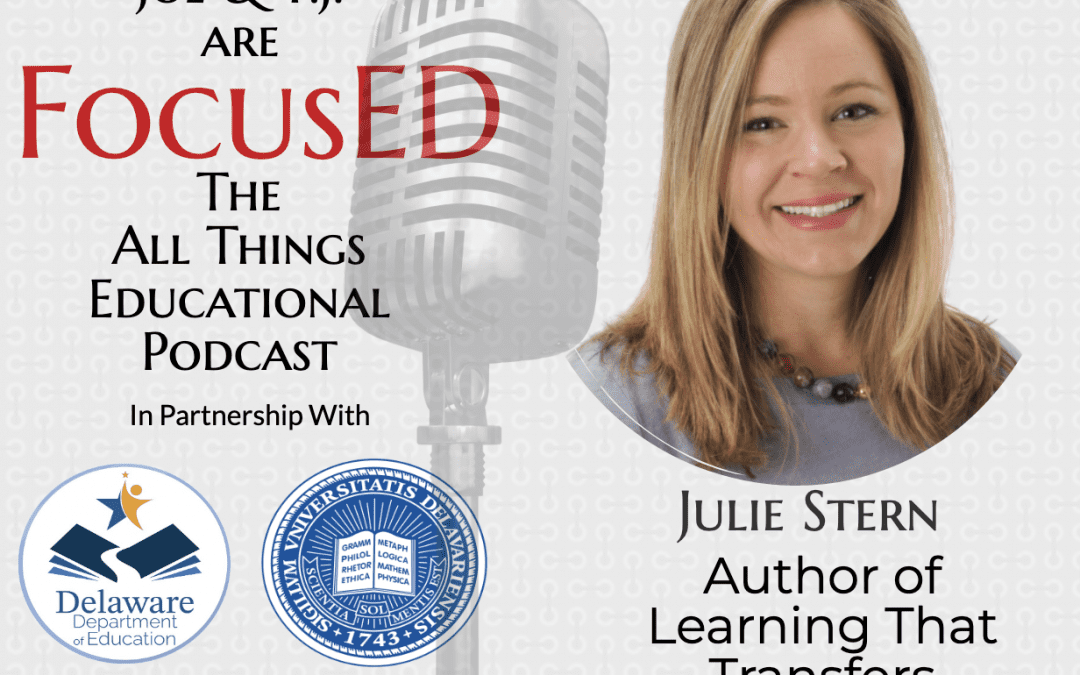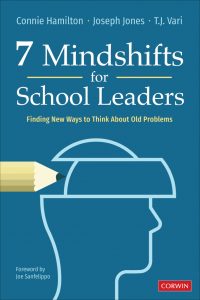
The A, B, Cs of a Beginner’s Mind: 3 Tips for Solving Old Problems with a New Approach
Great leaders understand that their own learning directly impacts their effectiveness. ~ TheSchoolHouse302
Shunryu Suzuki-Roshi, a Sōtō Zen monk, is known for his words of wisdom about directing our attention to ourselves as learners, not through what we’ve accomplished but through what we still don’t know. “Soto Zen Buddhism is distinguished by its focus on the down-to-earth practice of “everyday zen.”
We appreciate this sect of Buddhism because it encourages awareness of the workings of one’s own mind as a means of living mindfully in all areas of daily life–at home, at work, and in the community. This is powerful as learners and as leaders. His famous quote goes like this: “In the beginner’s mind, there are many possibilities, in the expert’s mind there are few.” This means that there are occasions when experience is the enemy of understanding. The longer we see an issue one way, the harder it is to change our minds about that issue. And, the longer a problem persists, the more likely it is accepted as unsolvable.
Suzuki teaches us that “the mind of a beginner is empty, free of the habits of the expert, ready to accept, to doubt, and open to all the possibilities.” The mind of an expert is often the opposite, coming to a conclusion based on what we already know versus the promise and potential of making new discoveries. This is a persistent problem in all fields, and we see it alive and well within education. The field of education is riddled with this problem, holding on to traditions and activities that we refer to as “Protected Untouchables” in 7 Mindshifts for School Leaders.
We can point to a number of things that we still do the same way that we’ve done for years, despite the research that tells us otherwise. Consider grading practices, such as the 100-point scale or the way we average students’ assignments within a marking period. First, there aren’t valid reasons for why we do this, and, second, there’s clear research that tells us that other approaches would serve our learners–both their academic and social well-being–better if we made significant changes to our current practices.
Even at Yale University, where grading is said to have begun, professor of psychology Dr. Laurie Santos still must enter grades even though her very own research shows that it hinders the learning process. This speaks to the numerous challenges associated with large-scale change, which requires a completely new way of thinking.
Grading is just one example of so many other long-standing traditions. But, it can be used to support the notion that education is an impenetrable industrial complex. We’re trapped within a system of schooling that spans from kindergarten through college that relies on methods and practices that are designed to measure learning, but then fall short in actually determining mastery. We keep a practice in place that thwarts our ability to meet our own predetermined goals. Pick another problem; the story is the same.
Part of the problem is that we think like experts. We are so used to doing things one way that we can’t see any other options, even when the literature is clear in our own field. The opposite approach is to use a Beginner’s Mindset, stepping back to see a problem from a whole new perspective. This is why certain school systems are unsuccessful with changes. They’re looking at the problem with the same lens that they used to create it. One reason that keeps us from sustaining new changes is that we constantly flip back-and-forth between one initiative and the next or we go back to what we’ve always done because it’s what we know, even when it doesn’t work.
We learned from Richard Elmore that a beginner’s mind is the approach necessary to challenge old and persistent thinking. What we need more than anything are models for generating new designs for how to tackle old problems. Your journey to having a beginner’s mind can start today, but you must first hold yourself accountable to the following A, B, Cs of a Beginner’s Mind. If you’re reading this, it’s because you’re willing to challenge the status quo with new mindshifts for teaching and leading in your school. Let’s get started with three simple steps that any school leader can take.

#1. Ask Questions–Generate probing questions, don’t accept a singular perspective to see the challenge with a new perspective
Excerpt from 7 Mentals Shifts: Finding New Ways to Think About Old Problems
It might seem unbelievable that our expertise could actually interfere with our ability to solve problems. Abraham Luchins (1942), a German psychologist, conducted a famous study called The Water Jug Experiment. The study was designed to investigate mental flexibility in thinking. In other words, if people can successfully solve a problem one way, can they shift their problem-solving process when faced with similar, but different, problems? Could people identify new, simpler, more efficient ways of solving a problem or does their previous knowledge create mental rigidity in their thinking?
Lutchin’s findings are clear. Once we have success with solving a particular problem a certain way, we continue to apply that same approach time and time again. This limits us from solving persistent problems because we get stuck with old ways of thinking and the model we used to solve the problems that didn’t work on our first attempt. To battle this, great leaders learn to ask effective questions. As E.E. Cummings penned, “Always the beautiful answer who asks a more beautiful question.”
We subscribe to what Todd Henry has to say in Herding Tigers about gleaning information from the team:
Because of vastly different life experiences, each person on your team has a unique perspective. Those experiences create filters that we can’t help but bring to the work we do. Two people can look at the same problem and see two entirely different things. This is why we need one another in order to see the full picture. However, it’s not as easy as it sounds to gain this perspective. A big part of this process is establishing regular feedback loops with team members so that you can (a) reinforce the ‘main thing’ and (b) hear their front-line perspective on the state of their work.
Pro Level Tip: Memorize great and useful question-stems to help generate good conversation and discussions. Questioning is a skill that requires practice and repetition. If you are at a loss on where to start, always remember the immortal words of Rudyard Kipling: “I keep six honest serving men (they taught me all I knew); Their names are What and Why and When And How And Where and Who.” Beginners ask lots of questions, and so should you.
#2. Be Vulnerable–Always think like a novice, and never overestimate your own expertise
Vulnerable leaders are “more interested in understanding reality than in being right and are not afraid to accept that they are wrong.” Being vulnerable does not mean being weak. In fact, admitting failure, blindspots, and challenges, helps the team to better understand the gaps in a transparent way. If we’re going to solve problems, we have to first be clear about what they are and why they exist.
One of the things that leaders who have a Beginner’s Mind are adept at doing is consistently working toward self-improvement. Not only are they on a quest to learn more and get better, but they also communicate their own weaknesses as well as the way they’re trying to address those deficiencies to their team. This puts us in a position with less authority over what it means to be an expert, but it also fosters the mindset that we ought to act as novices whenever we can. The novice mind, as Suzuki demonstrated, is the one that’s most open to learning and change.
Pro Level Tip: We have to be willing to ask the team, “what am I not seeing?” or “what am I missing?” Letting your team know that you are aware of your own blindspots is empowering for them. It also builds trust. Remember, one of Covey’s high trust behaviors is to Get Better. When you do that with transparency and the help of your team, you’ll build even stronger bonds with them, and they’ll see that using a Beginner’s Mind is important for all of us. The way to shed your expert brain is to be vulnerable about what you don’t know and what you need to improve about yourself.
#3. Create Space–Get past the constant noise, and don’t operate on autopilot
Very often, if we are so close to a situation that we cannot see it clearly. Our emotions, busyness, and distractions veil our site and hinder our ability to solve problems effectively. This is essentially the forest-for-the-trees argument, and despite the cliche, it’s true of many leaders. To practice a beginner’s mind, we need space. The constant noise of the day-in-and-day-out scenario can keep us on autopilot. Solving problems requires thinking differently; thinking differently requires time and space.
There are times when we literally need to separate ourselves from a situation to be able to lead it effectively. It’s been documented that we make up to 35,000 decisions a day; if that’s true, then many of our important decisions deserve more thought and attention than we’re giving them on autopilot.
Pro Level Tip: Literally separate yourself from a situation when possible. If it is a non-threatening emergency, go for a walk, stand up, grab a glass of water, or simply make time and space away from the decision at hand. Allow yourself to free your mind so that you are able to revisit the situation with a clearer perspective. The most mentally tough people don’t make decisions with haste. They’re positive, rational, and focused. That only happens when they create space for themselves.
Final Thoughts
Like most things in life that are worthwhile, embracing a beginner’s mindset takes time and effort. It’s something we know that we should do and then as the day progresses, we find ourselves head down, working hard, and pushing for results, only to find ourselves falling back into the old habits that Suzuki-Roshi warns us of. That’s why we created the A, B, and Cs of a Beginner’s Mind: Ask Questions, Be Vulnerable, and Create Space. It’s simple enough to follow and powerful enough to produce results. Remember, to lead better and grow faster, we are working on progress, not perfection. Ask questions, Be Vulnerable, and Create Space.
As always, we want to hear from you. Please hit us with a like, a follow, a comment, or a share. It helps us and it helps other readers, like you, to find our work so that more school leaders can lead better and grow faster.
We can’t wait to hear from you.







 7 Mindshifts for School Leaders: Finding New Ways to Think About Old Problems.
7 Mindshifts for School Leaders: Finding New Ways to Think About Old Problems. 


